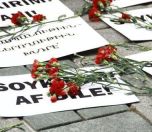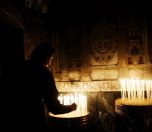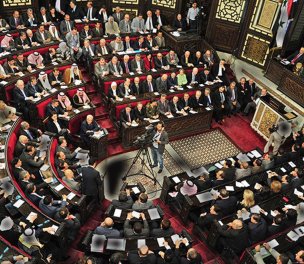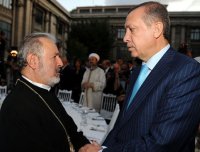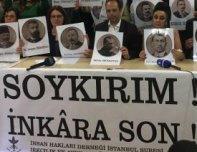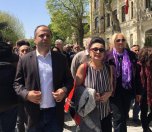Click to read the article in Turkish
Peoples' Democratic Party (HDP) Diyarbakır MP Garo Paylan has submitted a parliamentary inquiry on the Armenian Genocide to the Speaker's Office of The Grand National Assembly of Turkey (TBMM).
Paylan said in his inquiry that the genocide began on April 24, 1915, when prominent figures of the Armenian society were arrested and sent to Ankara and Çankırı. This is followed by the exile of the Armenian people from their land, and most of them were slaughtered in the vicinity of the cities they lived or on the road of exodus, Paylan added.
Paylan underpinned that the Armenian Genocide came to the agendas of parliaments in dozens of countries, yet the TBMM never held a session on the genocide.
"The parliament where the great calamity of the Armenian people to be talked is the parliament of the country where the calamity occurred. Namely, the parliament of Turkey," Paylan remarked.
Which countries recognize the genocide?Currently, 28 countries officially recognize the Armenian Genocide: Germany, Argentina, Austria, Belgium, Brazil, Bulgaria, Armenia, France, the Netherlands, Sweden, Switzerland, Canada, Cyprus, Lithuania, Lebanon, Luxembourg, Paraguay, Poland, Russia, Slovakia, Syria, Chile, Uruguay, Vatican, Venezuela, Yunanistan. In the US, Spain, Ukraine, the UK, Australia, İran and İsrael, the genocide is recognized in some regions or federal states. The Council of Europe and the European Parliament also recognize the genocide. |
"The Assembly should honor the memories of the intellectuals"
Paylan said that the Turkey Armenians have been waiting for justice for 104 years and that he submitted the inquiry "for justice be served".
Underpinning that the exiled and killed Armenian politicians, poets, writers, journalists in İstanbul would work for the Ottoman enlightenment and for the development of the Armenian culture, literature, and education, Paylan said, "Their absence gravely disrupted the land they lived and the Armenian literature and culture."
"Our assembly should give credit for and honor the intellectuals who put up a struggle for the enlightenment of the Ottoman and Armenian peoples, who kept the educational institutions alive, write, produce, think," Paylan added.
"Investigating what happened to, and the places of the graves of Dr. Rupen Çilingiryan-Sevag, Taniel Varujan, Keğam Parsağyan, Dikran Çögüryan, Nazaret Dağavaryan, Krikor Zohrab, and all the intellectuals who were arrested and slaughtered on April 24, 1915, and afterward, and laying them to rest appropriately will be big steps to face the big crime."
|
(EKN/VK)





